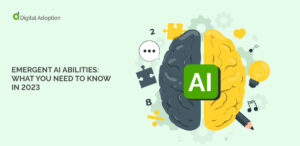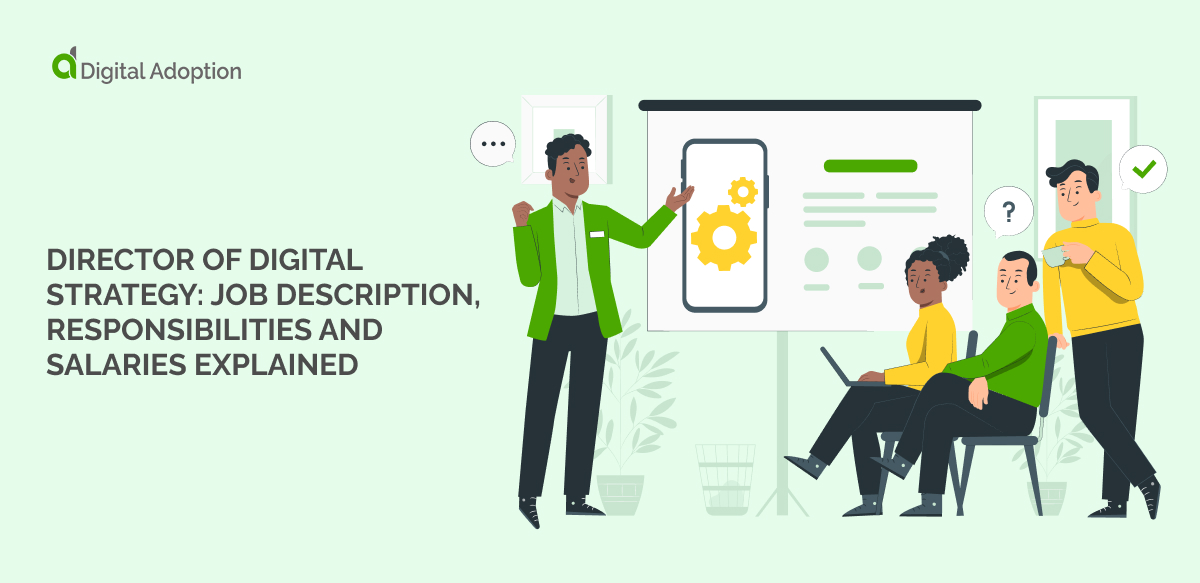What are some of the biggest digital transformation myths?
In this article, we’ll explore three of those myths – along with three must-know truths about digital transformation.
Let’s start by looking at some of the top misconceptions.
3 Digital Transformation Myths
In no particular order…
1. Digital transformation is only about technology.
Technology is a core part of digital transformation.
But it’s not the end-all be-all of digital evolution.
In fact, technology must be part of a holistic, integrated change project.
During transformation, companies must also take other approaches, such as:
- The adoption of new business practices, models, and workflows. Lean and agile are two examples of new business models. Others include digitizing the workplace, making use of online collaboration, remote working, and so forth.
- Changing the organizational strategy. In a world built upon digital technology, organizations must redefine their strategies. Innovative products, new markets, and new competitors require new approaches and tactics.
- The integration of new cultures, ideas, and ways of thinking. A culture resistant to change will not fare well in a marketplace driven by change. Companies should make adaptability, innovation, and change central to their corporate culture.
Transformation in the digital age means shifting to a new paradigm.
A digital-centric business world, in short, requires a digital-centric business approach.
2. It’s enough to just deploy new software.
Software deployment is another core piece of the digital transformation puzzle.
But, again, it is not enough.
That is, technology adoption and digital adoption are not the same. Deployment is only one part of the pipeline.
Other steps include:
- Onboarding – New users must be introduced to a tool or software. They need to learn the software’s purpose, how it works, its benefits, and its rollout plan.
- Training – The more effective the training, the better the results and ROI. Modern training solutions, such as digital adoption platforms, are essential for forward-thinking companies.
- Analyzing – Understanding usage behavior is critical during adoption. This insight can help you identify potential learning opportunities, users’ weak points, and where to improve training.
- Optimizing – During deployment and training, analysis will help you optimize training, communication strategies, and your approach to technology deployment.
The deployment process is better thought of as digital adoption.
Digital adoption is the process of deploying, implementing, and making use of technology to its fullest extent.
Why such a technical definition?
The biggest reason: ROI.
Companies that don’t make full use of their technology are leaving money on the table.
In most cases, these dividends are low-hanging fruit.
Solutions such as digital adoption platforms can dramatically enhance productivity and engagement.
3. Digital change projects are one-off projects.
Digital change doesn’t end when a single project completes.
In fact, as technology adoption continues to accelerate, so too does digital transformation.
Today, we are witnessing the emergence of many new technology trends, such as:
- AI
- AR and VR
- Autonomous vehicles
- IoT
And much more.
The emergence of these new technologies will not slow down.
And, as a result, digital transformation will not slow down.
If anything, companies should make their digital transformation capabilities more robust.
3 Must-Know Truths About Digital Transformation
What are some of the most important digital transformation trends and realities?
1. Digital transformation is still human-centric.
Despite the tidal wave of technology, today’s businesses are still human-centered.
For instance, humans still operate organizations.
A company may install a dozen new software platforms and automate a dozen processes. But humans still run the show.
And when it comes to revenue, customers still pay the bill.
This relationship is still paramount. And it is why businesses devote so much effort to the customer experience.
Regardless of the digital strategy, human beings still take precedence.
Don’t think of technology as the end, but as the means.
A better experience for humans – from the customer experience to the user experience – is the end goal.
2. Speed and innovation separate the winners from the losers.
Careful planning is essential.
But speed and innovation rule.
We see this manifest in every area of business:
- Companies that release products faster grab market share before competitors
- Agile companies can respond, react, and grow more quickly, giving them an advantage in the marketplace
- Organizations that adopt new technology faster get a quicker return on their investment
In an environment that is becoming more competitive – and faster-paced – companies should take every step to ensure they can innovate quickly.
3. Culture is king.
Change managers know that people drive change.
For this reason, digital transformation efforts should also make efforts to change company cultures.
In the digital age, good company cultures are:
- Innovative, creative, and exploratory. It should go without saying that companies who drive innovation are more likely to develop new products, services, and strategies.
- Open to change and new ideas. Prudence can be wise, but cultures that resist change cannot adapt. Such a workplace environment hinders digital adoption and transformation.
- Digitally literate. Digital literacy dramatically improves employees’ ability to operate in today’s digital-first business environment. All organizations should ensure their employees have a modicum of digital skills.
Organizations should carefully consider what culture they want to cultivate.
It can have a significant impact on the workplace experience, the company’s reputation, and its digital transformation efforts.













